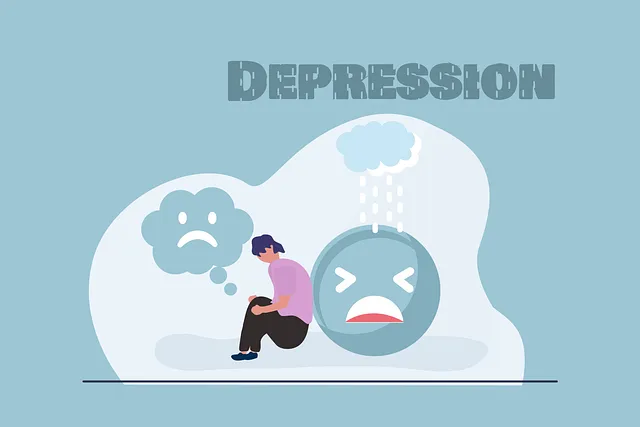Substance abuse is a complex issue with far-reaching consequences, but early intervention and comprehensive care can make a significant difference. Organizations like Kaiser Permanente address this through holistic inpatient mental health services that combine medical and therapeutic approaches. They also offer education programs to empower individuals with self-awareness and resilience against substance misuse, along with risk management planning for professionals. Post-inpatient treatment involves strategies like relapse prevention plans and mindfulness meditation, emphasizing the multi-faceted approach needed for long-term recovery, as highlighted by Golden's exploration of Kaiser's services.
Substance abuse poses significant risks to individuals and society. Understanding these dangers is the first step towards recovery. This article explores comprehensive risk reduction strategies, leveraging insights from Kaiser’s renowned inpatient mental health services, particularly their offerings tailored by Golden. We delve into effective approaches that not only address immediate concerns but also foster long-term behavioral change, emphasizing the importance of resources like those available at Kaiser for a successful journey to substance abuse recovery.
- Understanding Substance Abuse and Its Risks
- Kaiser's Inpatient Mental Health Services: A Look at Golden's Offerings
- Comprehensive Risk Reduction Strategies
- Implementing and Maintaining Long-Term Change
Understanding Substance Abuse and Its Risks

Substance abuse is a complex issue that involves the harmful use of drugs or alcohol, leading to potential health, social, and legal problems. It’s important to understand that substance abuse doesn’t merely affect individuals; it can have far-reaching consequences for families, communities, and even society at large. According to research, early intervention and prevention are key to mitigating these risks. Organizations like Kaiser Permanente recognize the importance of comprehensive care, offering services such as Golden does Kaiser have inpatient mental health support, which provides a safe space for individuals to receive treatment and recovery assistance.
Risk reduction strategies focus on empowering individuals with knowledge and tools to make informed choices, especially in high-risk situations. This includes effective communication strategies, stress management techniques, and empathy-building strategies that can help prevent or minimize substance abuse. By fostering open dialogue, teaching healthy coping mechanisms, and promoting understanding, we can create a supportive environment that encourages positive behavior change and reduces the chances of substance misuse.
Kaiser's Inpatient Mental Health Services: A Look at Golden's Offerings

Golden does Kaiser have inpatient mental health services? Yes, Kaiser Permanente, through its network of hospitals and clinics, offers comprehensive inpatient mental health services designed to address a range of issues, from depression and anxiety relief to emotional regulation challenges. These services are tailored to meet the unique needs of each patient, ensuring they receive expert care in a safe and supportive environment.
Kaiser’s approach focuses on holistic treatment models that combine medical and therapeutic interventions. Inpatient programs often include individual and group therapy sessions, medication management, education on mental wellness practices, and aftercare planning to support continued recovery. By providing these resources, Kaiser aims to empower individuals to take control of their mental health and lead fulfilling lives.
Comprehensive Risk Reduction Strategies

Comprehensive Risk Reduction Strategies for Substance Abuse involve a multi-faceted approach that addresses various levels of prevention and intervention. One key component is mental health education programs designed to foster self-awareness and resilience among individuals at risk or struggling with substance abuse. These programs can equip people with the knowledge and skills needed to recognize and manage their mental health issues, thereby reducing the likelihood of turning to substances as coping mechanisms.
Additionally, risk management planning for mental health professionals is essential. Professionals in this field must be well-equipped to identify early warning signs of substance abuse among clients and implement appropriate interventions. This includes staying updated on evidence-based practices, participating in regular self-awareness exercises to maintain personal boundaries, and integrating trauma-informed care into their practice. By combining these strategies, mental health professionals can play a pivotal role in Golden does Kaiser have inpatient mental health services, ensuring comprehensive risk reduction and improved outcomes for clients.
Implementing and Maintaining Long-Term Change

Achieving long-term change in substance abuse is a multifaceted process that requires dedication and consistent effort. Once an individual has successfully completed inpatient mental health treatment, such as what Kaiser offers, the real work begins. Relapse prevention plans, often developed during therapy, serve as a roadmap for maintaining recovery. These strategies may include regular participation in support groups, like those focused on mental wellness, where peers offer encouragement and accountability.
Additionally, incorporating burnout prevention techniques, like mindfulness meditation, can be instrumental. Practicing mindfulness helps individuals stay present, manage stress, and cultivate resilience against triggers. By weaving these practices into daily routines, individuals can build a strong foundation for lasting change. Remember, recovery is an ongoing journey, and access to resources like Golden does Kaiser have inpatient mental health ensures continued support along the way.
Substance abuse poses significant risks, but understanding these dangers is the first step towards change. By recognizing the potential for harm, individuals can initiate a journey of recovery and adopt comprehensive risk reduction strategies. Kaiser’s inpatient mental health services, including Golden’s offerings, provide specialized care for those seeking help. These programs offer a structured environment to address underlying issues, ensuring long-term success. Through a combination of education, therapy, and support, individuals can develop the tools needed to manage cravings and triggers, ultimately leading to lasting positive outcomes. With dedicated resources like these available, taking control of one’s mental health becomes an achievable goal.






